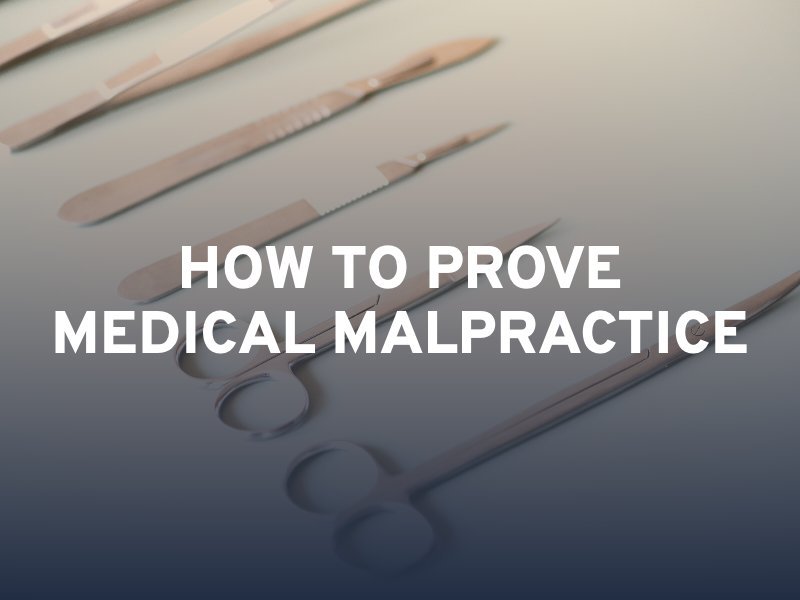Medical malpractice affects thousands of patients each year. Malpractice is a health care professional’s failure to provide the appropriate standard of care, resulting in patient injuries and deaths. If you believe you have a medical malpractice claim in New Jersey, you or your Monmouth County medical malpractice lawyer will be responsible for fulfilling the burden of proof. You must present clear and convincing evidence that four elements are more likely to be true than not true.

A valid medical malpractice claim relies on the fact that a provider-patient relationship existed between the injured victim (plaintiff) and the at-fault party (defendant) at the time of the alleged mistake. Without this relationship, the defendant would not have owed the plaintiff any duties of care, meaning the defendant will not be liable for damages.
You must establish that you were the defendant’s patient at the time of the act of malpractice using evidence such as your medical records or bills from the hospital. Being a patient gives you the right to expect a certain standard of care from the medical provider. If you were not a patient, on the other hand, the defendant would not have owed you a professional duty of care.
The doctor or health care facility must have failed to meet the accepted standards of medical care when providing services to you as a patient. The medical industry has high standards for the physician-patient relationship. If a doctor was negligent, careless or reckless during treatment, that doctor could be guilty of medical malpractice. Any mistake that a reasonably skilled and careful physician would not have made in the same circumstances can qualify as malpractice.
You will need evidence to demonstrate how the defendant deviated from the appropriate medical standard of care. Common forms of evidence are eyewitness statements, photographs, medical documents and testimony from a medical expert. An expert in the same field as your physician can explain your doctor’s duties of care to a jury, as well as how the doctor breached these duties by providing you substandard care.
The defendant’s medical negligence must be the proximate, or main, cause of your injury to have a successful medical malpractice claim. The doctor or hospital must have actually caused the harm in question. You must provide proof showing that your injury, illness, infection or a loved one’s death would not have happened but for the defendant’s breach of the medical standard of care. Proof can take the form of a medical expert testifying to the connection and showing that you would not have suffered the injury under the care of a prudent physician.
Finally, you will need evidence proving your quantifiable damages in relation to the doctor’s negligence or incompetence. The alleged act of medical malpractice must have given you compensable losses, such as:
You or your lawyer will need to submit evidence of these losses in the form of documentation such as hospital bills, receipts, travel expenses, pay stubs, and letters from your doctor and employer. Only then can you obtain compensation for these losses from the defendant.
Duty, negligence, causation and damages are the four main elements you must prove for a successful medical malpractice claim in New Jersey. You must also file your claim within the state’s two-year deadline and submit an affidavit of merit from an expert. A medical malpractice attorney can help you with all of these processes, including meeting your burden of proof. Work with an attorney near you for the best odds of a successful medical malpractice case.